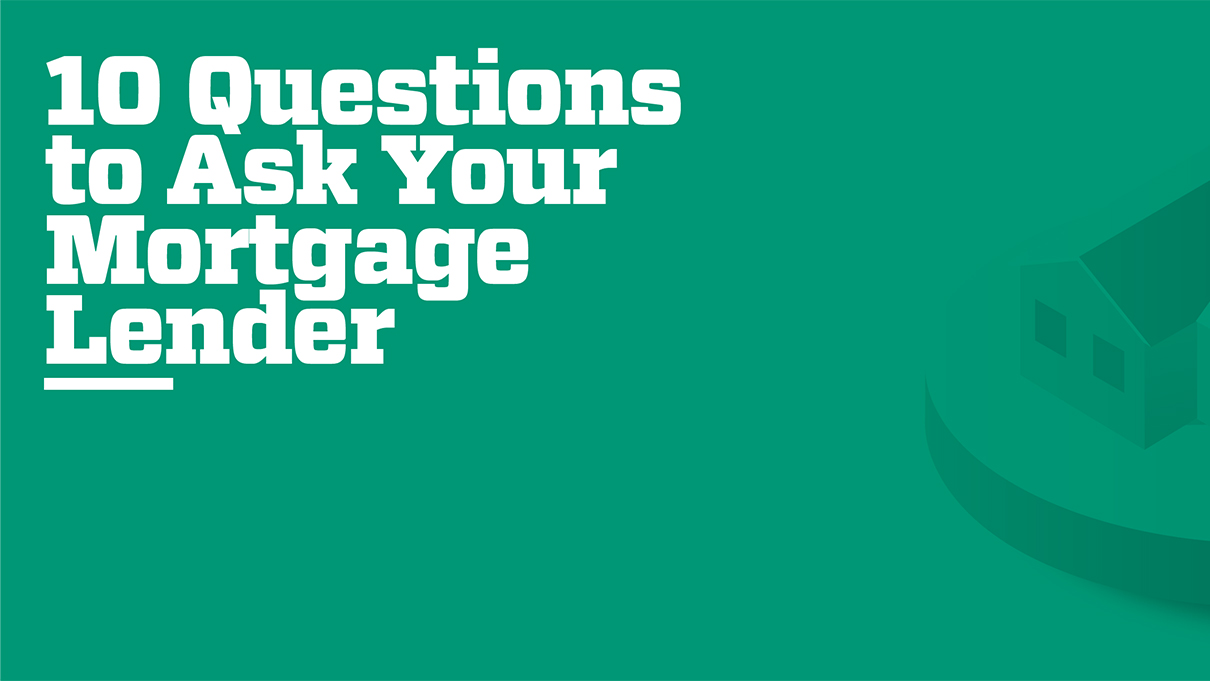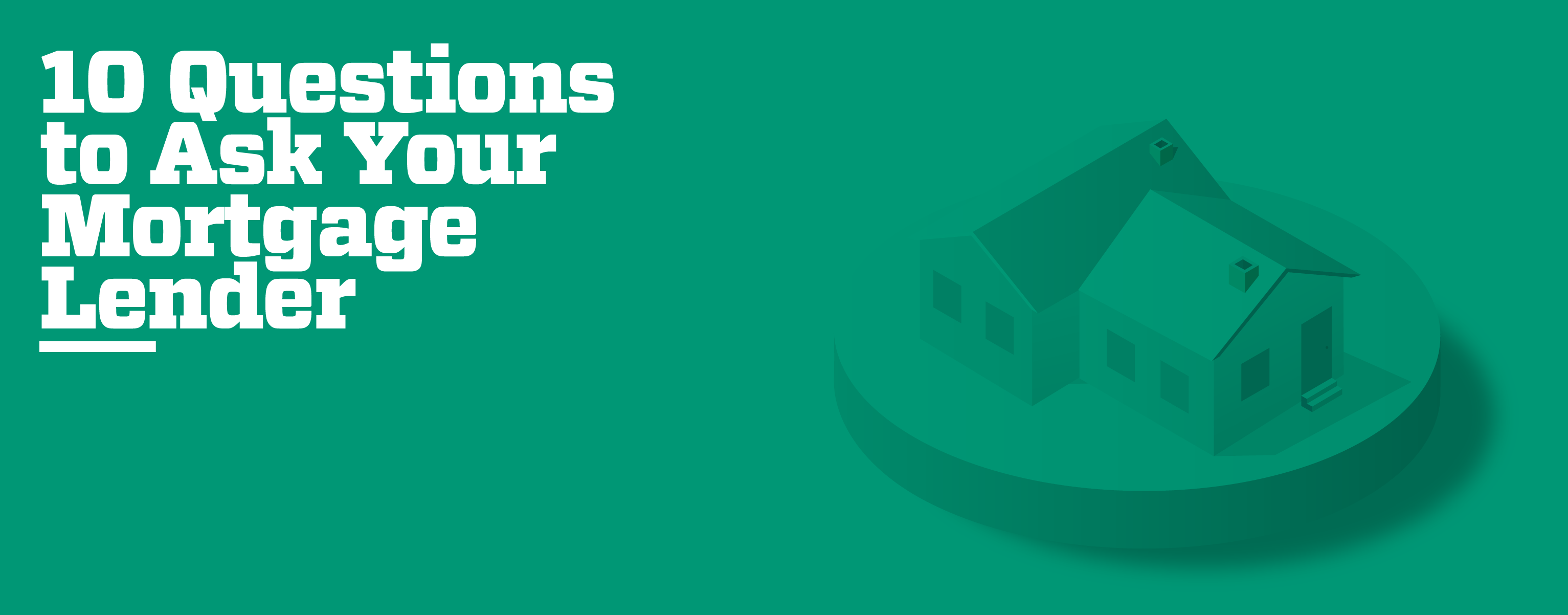10 Questions to Ask Your Mortgage Lender


Homeownership is a dream and goal of many Americans, and the right mortgage lender can put this in reach. But buying a home isn't as simple as placing an online order or even buying a car. There is a lot involved in this process.
This could be one of the most significant transactions that you will ever make, and it can get complicated. The good news is that this shouldn't scare you away because millions have done this before you and you have people in your corner that want to see you succeed.
One of those is your mortgage lender, and here are 10 questions you should ask to both ease your mind and make sure you have all of your financial ducks in a row for your upcoming home purchase.
1. How much money can I borrow?
How much you will be able to borrow isn't going to be the same as your co-worker or best friend. Your creditworthiness determines this figure. What does this mean? A lender will look at your income compared to the amount of debt that you hold. They will also consider other factors such as your employment status and credit history.
Speak to your mortgage lender about getting prequalified for a mortgage before you begin shopping for a home. This can simplify your experience. Also, ask about special mortgage programs for first-time homebuyers and military veterans.
2. What is my down payment requirement?
If you want to get the best interest rate on your mortgage loan, you should plan on committing at least 20 percent of the purchase price as a down payment. Lower down payments are certainly possible, but a loan like this might require that you also have private mortgage insurance (PMI).
The amount of down payment that you choose is going to impact such things as your APR, monthly payments, and loan term. Ask the mortgage lender what they require and find out if you qualify for any cost-saving assistance programs.
3. What is the interest rate on your loans?
Of course, you want to ask your lender about the interest rates on their mortgage loans. Find out about direct interest rates and have the lender give you the corresponding annual percentage rate (APR) for each loan. The APR will incorporate all loan-related charges, such as fees, so that you can get the most accurate picture of what you will pay to borrow money.
4. How are fixed rate and adjustable rate mortgages different?
You may be surprised to learn that there are many different types of mortgage loans. This is a benefit since you and your mortgage lender can customize a loan to suit your needs and financial situation. Ask your lender to explain their options.
A fixed-rate loan is going to charge you the same interest rate for the life of the loan, generally 15 or 30 years. This means that your monthly payment is never going to change. An adjustable-rate mortgage (ARM) has an interest rate that can go up or down based on market conditions and the terms of the loan. For example, a 30-year ARM might have a fixed rate for the first 5 years and then adjust annually.
5. How many points does the rate include?
Ask your lender if their loans have points and, if so, how many. Points are fees charged by lenders in exchange for a lower interest rate (1 point equals 1% of your total mortgage). Discuss the benefits of using or not using points in your mortgage with your lender.
6. When can I lock in my interest rate?
Interest rates can change, so it would be beneficial to lock in your interest rate if there is a possibility of rates going up. Ask your lender when you can lock in your mortgage interest rate and how long that rate lock is valid. Generally, lower interest rates are awarded to shorter rate locks.
7. What are the estimated closing costs on my loan?
There are many costs associated with buying a home, and closing costs can be steep. These include appraisal fees, attorney fees, and loan origination fees. Ask your lender to help you estimate these based on your home purchase price and the type of mortgage that you'd like to use.
8. Are there any other fees or costs that I need to know about?
It helps to be as prepared as possible when you buy a home and take out a mortgage. Have your lender give you an estimate of all the fees you will be expected to pay. They generally provide this on a Closing Disclosure form.
9. Can you tell me when my closing will take place?
Many of the factors that will determine your closing date are beyond your control. The mortgage, however, is a big part of the closing, so your lender can at least give you an idea of when their part of the equation will be finalized.
10. Are there any factors that could delay my closing?
There are also many things that can delay and derail a closing. Buying a home is a complicated process that involves many moving parts. The best way to avoid unwanted delays is to stay in close communication with everyone involved and provide each party with the documentation they require to keep the process moving towards closing.
City Bank Mortgage
Whether you are ready to buy a home or just have a few questions, City Bank is ready to speak with you about your options and its mortgage programs. We offer best-in-class experienced paired with competitive rates on a wide range of mortgage loans. Contact us now to start an application or discuss your next steps.

